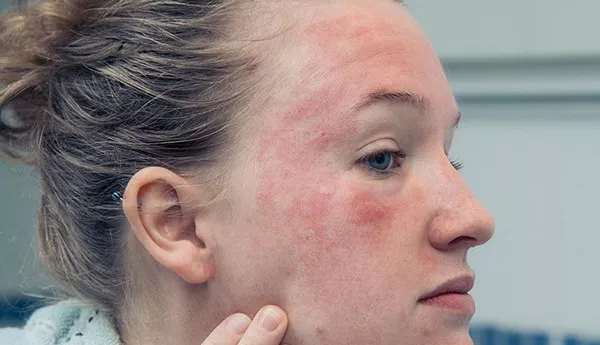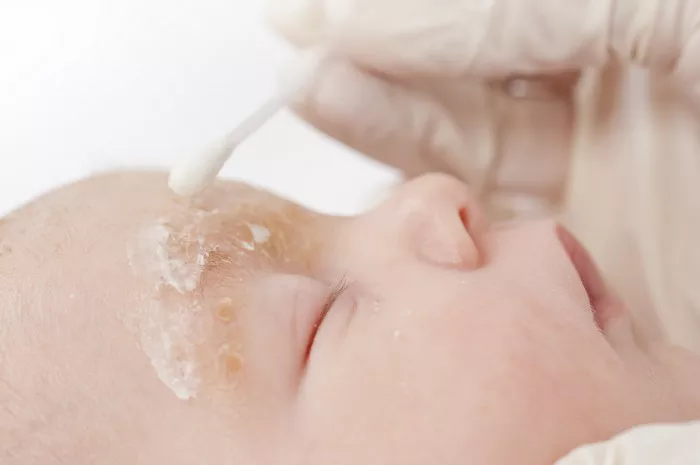Dermatitis is a common skin condition that can cause redness, irritation, dryness, and swelling. When it appears on the face, it can be particularly distressing due to the visible nature of the condition. Whether you have eczema, seborrheic dermatitis, or contact dermatitis, managing and clearing up dermatitis on your face requires careful attention and a consistent skincare routine.
In this article, we will explore practical steps to help clear up dermatitis on your face, including lifestyle changes, proper skincare, and medical treatments.
Understanding Dermatitis
Dermatitis is a broad term that refers to skin inflammation. There are several types of dermatitis, and the symptoms can vary depending on the type. The most common types of dermatitis that affect the face include:
Atopic dermatitis (eczema): This type is usually associated with dry, itchy skin. It is often found in people who have a family history of allergies, asthma, or eczema.
Seborrheic dermatitis: Characterized by greasy, scaly patches of skin, often around the nose, forehead, and scalp.
Contact dermatitis: Occurs when the skin comes into contact with an irritant or allergen, such as certain skincare products, perfumes, or metals like nickel.
Understanding which type of dermatitis you have is crucial to finding the right treatment. If you’re unsure about your condition, it’s best to consult with a healthcare provider or dermatologist.
Step 1: Identify and Avoid Triggers
One of the key factors in clearing up dermatitis on the face is to identify and avoid triggers that cause flare-ups. Common triggers can vary from person to person, but some of the most frequent ones include:
Harsh skincare products: Products that contain alcohol, fragrances, or other irritating ingredients can exacerbate dermatitis.
Hot weather and sweat: Extreme temperatures or excessive sweating can cause irritation, especially if your skin is already inflamed.
Stress: Emotional stress can trigger flare-ups in some individuals with eczema or other types of dermatitis.
Dietary triggers: Certain foods, like dairy or gluten, may trigger dermatitis in some individuals.
Environmental allergens: Dust, pollen, and pet dander can aggravate sensitive skin.
Start by tracking your flare-ups in a journal to identify patterns. Once you’ve pinpointed the triggers, avoid them as much as possible. For example, if you notice that using a certain skincare product worsens your symptoms, stop using it and switch to a more gentle option.
Step 2: Follow a Gentle Skincare Routine
A gentle skincare routine is essential for managing dermatitis on the face. Harsh or over-exfoliating treatments can strip the skin of its natural oils, worsening dryness and irritation. Instead, opt for a routine that soothes and hydrates your skin. Here’s how to build a gentle skincare routine:
Use a mild cleanser
Choose a mild, fragrance-free cleanser that won’t irritate your skin. Avoid foaming cleansers, as they can be drying. Look for cream-based or non-foaming cleansers that are formulated for sensitive skin. Cleanse your face gently using lukewarm water, and avoid hot water, which can worsen inflammation.
Moisturize regularly
Moisturizing is crucial for restoring your skin’s natural barrier. Choose a thick, emollient-rich moisturizer that is designed for sensitive or dry skin. Opt for products that contain ingredients like ceramides, hyaluronic acid, or glycerin, which help to retain moisture. Apply your moisturizer immediately after cleansing, while your skin is still damp, to lock in moisture.
Avoid scrubbing or exfoliating
Exfoliating your skin can remove dead skin cells, but it can also strip away essential oils, leaving your skin more vulnerable to irritation. Avoid physical exfoliants (like scrubs) and chemical exfoliants (such as products with salicylic acid or retinol), as they can worsen dermatitis.
Sun protection
Exposure to the sun can worsen dermatitis symptoms. Use a mineral sunscreen with SPF 30 or higher that is free of fragrances and chemicals. Zinc oxide and titanium dioxide are good options for sensitive skin, as they provide physical barriers without causing irritation.
Step 3: Use Dermatologist-Approved Treatments
For moderate to severe cases of dermatitis on the face, over-the-counter treatments may not be enough. In such cases, a dermatologist may prescribe topical medications to help manage inflammation and irritation. Common treatments for dermatitis include:
Topical corticosteroids
Topical steroids are commonly prescribed to reduce inflammation in cases of dermatitis. These are available in different strengths, ranging from mild hydrocortisone creams to stronger corticosteroids. Use them sparingly and as directed by your doctor, as overuse can lead to skin thinning or other side effects.
Topical calcineurin inhibitors
If corticosteroids aren’t effective or you need a long-term solution, your dermatologist may recommend topical calcineurin inhibitors such as tacrolimus (Protopic) or pimecrolimus (Elidel). These medications help to suppress the immune response that causes inflammation.
Emollient-based ointments
For dry and flaky skin associated with dermatitis, emollient-based ointments can be beneficial. These ointments work by forming a barrier on the skin, trapping moisture and preventing further dryness. They should be applied regularly to help restore skin hydration.
Oral medications
In some cases, your doctor may prescribe oral medications like antihistamines to control itching or oral steroids to reduce inflammation. These are typically used for short-term flare-ups or severe dermatitis.
Step 4: Incorporate Natural Remedies
In addition to conventional treatments, several natural remedies can help alleviate the symptoms of dermatitis on the face. These should be used with caution and only after consulting with a healthcare provider to ensure they don’t interfere with prescribed treatments.
Aloe vera
Aloe vera is widely known for its soothing and anti-inflammatory properties. Applying fresh aloe vera gel directly from the plant can help calm irritated skin and promote healing. Look for creams and gels that contain pure aloe vera without added fragrances.
Coconut oil
Coconut oil has natural antibacterial and antifungal properties. It can help moisturize the skin and reduce inflammation. Apply a thin layer of organic, cold-pressed coconut oil to your face and leave it on overnight for added hydration.
Oatmeal baths or masks
Oatmeal has been used for centuries to soothe irritated skin. You can create an oatmeal paste by grinding oats and mixing them with water, then applying it to your skin for about 15-20 minutes. Oatmeal baths are also effective in reducing irritation and inflammation.
Chamomile tea
Chamomile contains antioxidants and anti-inflammatory compounds. Drinking chamomile tea may help reduce internal inflammation, while applying cooled chamomile tea bags to the skin can help calm irritation.
Step 5: Modify Your Lifestyle
Alongside skincare and treatment, making a few lifestyle changes can help prevent flare-ups and support your skin’s healing process.
Manage stress
Chronic stress is a common trigger for dermatitis flare-ups. Practices like yoga, meditation, deep breathing, or simply taking regular breaks can help reduce stress levels. Managing your stress can have a significant impact on your skin’s health.
Improve your diet
Some individuals find that certain foods can trigger dermatitis. While the evidence is still inconclusive, you might want to try eliminating common allergens like dairy, gluten, or processed foods. Including more anti-inflammatory foods in your diet, such as omega-3-rich fish, leafy greens, and antioxidant-rich fruits, may help support your skin health.
Stay hydrated
Drinking plenty of water is essential for keeping your skin hydrated from the inside out. Proper hydration helps maintain the skin’s moisture barrier, which is particularly important for individuals with dermatitis.
Get enough sleep
A lack of sleep can increase stress levels and impair the body’s ability to repair and heal itself. Aim for 7-9 hours of sleep each night to allow your body, including your skin, to recover.
Step 6: Consult a Dermatologist
If your dermatitis does not improve with over-the-counter treatments or home remedies, or if it worsens, it’s important to consult a dermatologist. A dermatologist can help diagnose the type of dermatitis you have and prescribe stronger medications or alternative treatments.
It’s also important to have regular check-ups if you are using prescription treatments, as some medications require monitoring for side effects.
Final Thoughts
Dermatitis on the face can be challenging to manage, but with the right approach, it is possible to clear up and maintain clear skin. Identifying triggers, following a gentle skincare routine, using appropriate treatments, and making lifestyle changes can all contribute to improving the condition. Always consult with a healthcare provider for the best course of action tailored to your specific needs.
By taking proactive steps and maintaining consistency, you can significantly reduce the appearance of dermatitis and enjoy healthier, more comfortable skin.
Related topics

























